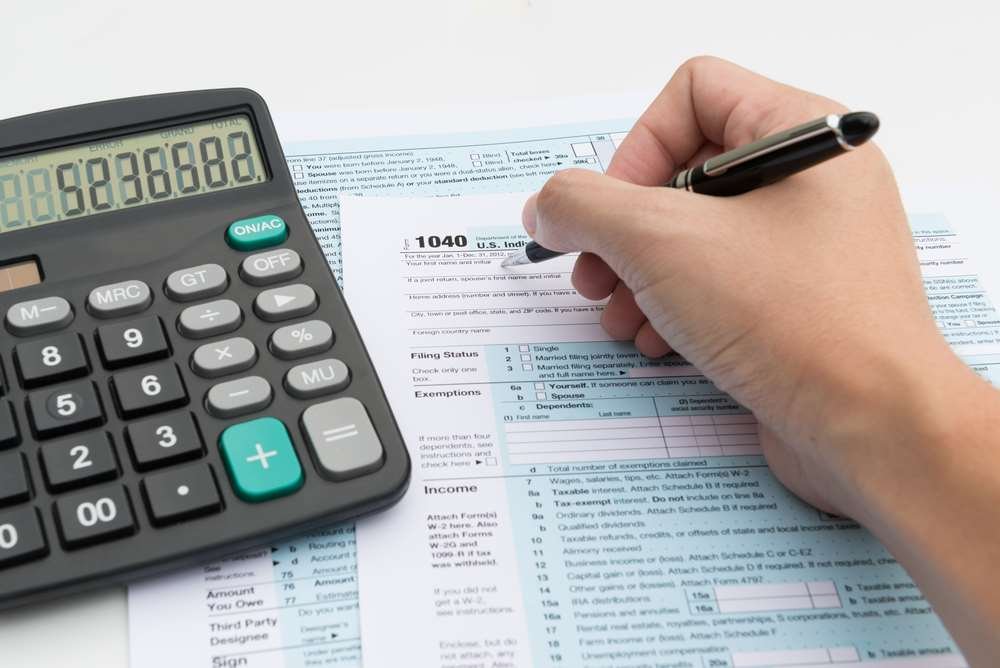Tax Preparation Specialist Provides Guidance on Non-deductible Expenses in Approach to Self Assessment Deadline
Published by Gbaf News
Posted on January 16, 2020
5 min readLast updated: January 21, 2026

Published by Gbaf News
Posted on January 16, 2020
5 min readLast updated: January 21, 2026

With just over two weeks to the Self Assessment deadline, millions of taxpayers will be aiming to ensure their tax returns are submitted on time. Although the majority of those will relate to self-employment income, a significant number of those will be for employees. As well as higher-rate taxpayers and those impacted by the High Income Child Benefit Charge, employees who wish to claim tax relief on their work-related expenses may have to complete and submit a tax return. David Redfern, tax preparation specialist and Managing Director of DSR Tax Claims Ltd, explains which household expenses should not be included in your Self Assessment tax return and why.
Employees who wish to claim tax relief on any work-related expenses greater than £2,500 are expected to claim through a Self Assessment tax return. These expenses may relate to business travel or providing tools and small equipment for use at work but for an increasing number of employees, homeworking expenses also feature as deductible expenses. Redfern explained “As homeworking grows in popularity, more and more employees are looking to see if any of their household expenses can be classed as deductible for tax relief. The first thing to note before looking any further is that HMRC will only reimburse expenses relating to working from home where it is not by choice for the employee. If the employee chooses to work from home, as opposed to being required to do so by their employer, they are not entitled to tax relief. For example, if we look at teachers taking marking and lesson preparation home, unfortunately they are not entitled to claim tax relief for additional household expenses. HMRC would consider that teachers are able to perform these tasks at school, even if it is less convenient for them to do so”.
There are a number of household expenses to which tax relief cannot be applied. These include Council Tax, rent, water rates, mortgage interest or endowment policy payments and home insurance. Redfern stated “As far as HMRC are concerned, the employee would have these expenses regardless of their working arrangements – none of these can be considered to be expenses incurred in the performance of their employment duties so none of them meet the “wholly and exclusively” criteria which HMRC uses to determine whether an expense can be used for tax relief. Whether the employee worked from home or the employer’s premises, these expenses would be the same. As for home insurance, HMRC considers this to be an optional expense to prevent incurring an even greater expense”. Similarly, broadband charges are not considered deductible because the cost of the broadband contract would be the same whether it was being used solely for personal usage or a mixture of business and personal usage.
Since April 2013, employers are able to make tax-free payments of up to £4 per week to employees to cover any additional household expenses incurred during homeworking arrangements. However, this does not mean that employees are entitled to relief on any additional expenses, as Redfern explains “The restrictions on an employer making tax-free reimbursement payments are far less strict than those covering tax relief. This means that just because a tax-free reimbursement could have been made to an employee, that same employee will not be entitled to claim those same expenses as tax relief if a reimbursement is not made by the employer. Nor can the employee claim the difference as tax relief for payments less than £4 per week. HMRC sets the bar considerably lower for employer reimbursement than for employee tax relief”.
Self-employed taxpayers are able to claim a wider range of household expenses if they perform business activities from home and can use simplified expenses if they do not wish to break down their household expenses to work out the business usage proportion. These are based on hours worked at home per month, over a minimum of 25 hours per month. Where the worker works fewer than 25 hours per month, these simplified expense rates cannot be claimed. Self-employed workers working from home for 25 to 50 hours per month can claim £10 per month without having to provide receipts or a breakdown of household expenses. Those working between 51 and 100 hours can claim £18 per month and those working more than 101 hours from home per month can claim £26 per month in simplified expenses. Redfern explains “These simplified expenses should be claimed through Self Assessment although where a worker’s household expenses, incurred wholly and exclusively or business purposes, are considerably higher than the simplified expenses allows for, they can claim actual costs but they will need to work out the business-related proportion and retain the appropriate business records as evidence in case required by HMRC”.
The Self Assessment deadline for tax year 2018/19 is midnight on 31st January 2020.
Explore more articles in the Business category











